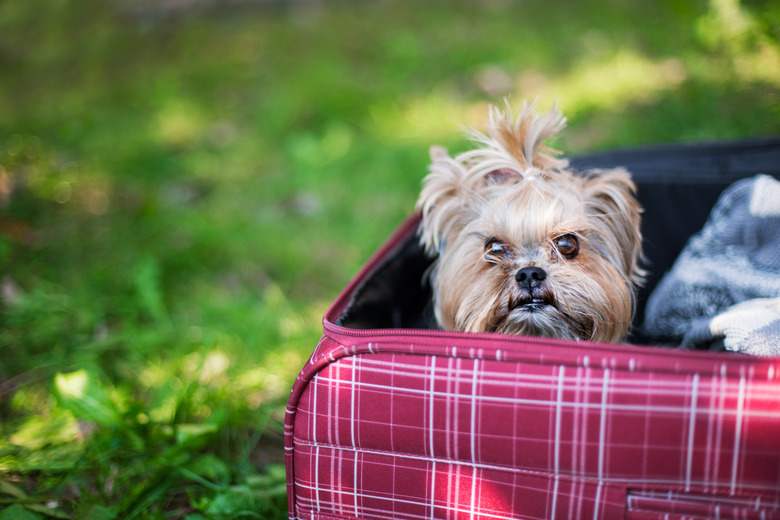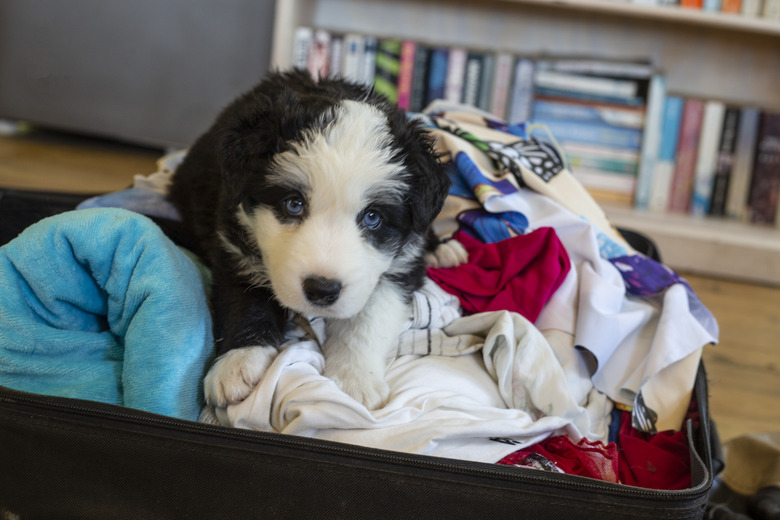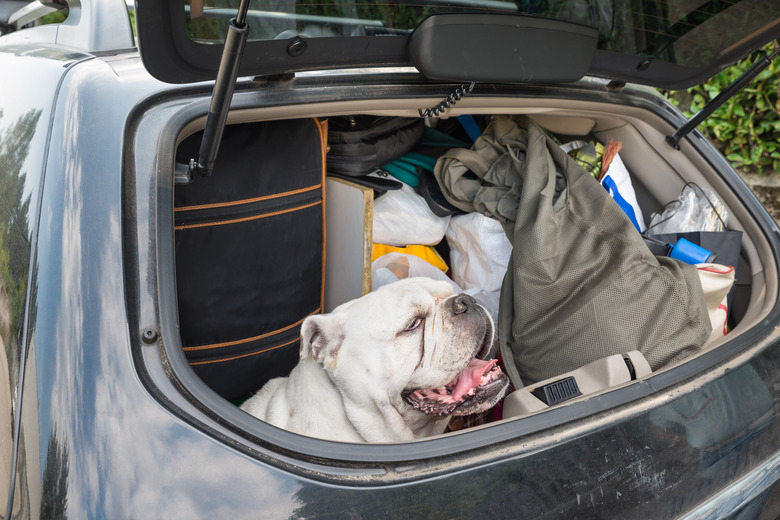Does My Dog Know When I'm Leaving For Vacation?
Dogs are some of the most loving and insightful creatures. When you're sad, who is the first to come to cuddle in your lap and give you kisses? Who loves you no matter what and is always ready to play? Dogs can literally sniff out how we are feeling and will comfort us accordingly. They know we are coming home even before we walk in the door. So, when you are leaving your dog for vacation, does she know?
Seeing the luggage come out
Seeing the luggage come out
Many dog owners will attest that their dog knows something is up the second the suitcase comes out of the closet. It is not surprising that your dog recognizes the suitcase. Dogs have the ability to recognize specific objects—their favorite toy, your favorite shoes—based on a combination of both scent and sight. In fact, almost all dogs can be trained to recognize different items not limited to squeakers or sneakers.
Detection dogs are trained to sniff out bombs, bodies, and drugs through a combination of positive reinforcement and repetition. Just like his most beloved tennis ball, your dog has a relationship with your luggage, albeit a negative one. The second he sees the bag come out, certain patterns of behaviors will be unleashed. Just like humans, dogs will have responses associated with specific triggers.
Associative learning in dogs
Associative learning in dogs
Pavlov's dog drooled every time he heard a bell. Your dog's tail starts wagging when you grab a ball. Maybe the scent of roast chicken makes your dog go wild since he knows table scraps are imminent. In each of these cases, the dog has associated either the sound of the bell, the look of a ball, or the smell of food with something positive. Food, play, and more food are enough incentives for your dog to learn to connect sounds, sights, or smells to specific outcomes.
Your dog's anxiety before you travel may also be the result of associated learning. Associated learning, also called classical conditioning, is when your dog learns something through the repetition of a specific stimulus and a reward. In the case of your traveling, your dog learns that when your suitcase comes out of the closet you are leaving your dog for vacation.
Just as your dog may recognize the sound of you grabbing a leash off the shelf as the sign that you both will be going on a walk, watching you pack lets your dog know that you are going somewhere—and potentially not with him. That being said, if you tend to go on vacation with your dog, seeing a suitcase or watching you pack might be the source of great excitement for your dog.
Creating a positive association
Creating a positive association
Since all the signs are pointing to you going on vacation, you can help your dog feel at ease by using the same training techniques. If your dog seems depressed while you pack, try cheering her up with treats or walks. Show her your luggage, have her smell it, and then use positive reinforcement techniques so that the connection she makes is a happy one.
If you have a regular pet sitter, have her shower your pup in extra walks, pats, and cuddles. It's not going to be as good as you obviously, but at least it's something she can look forward to.
Understanding the passage of time
Understanding the passage of time
Dogs and humans mark time differently. Humans can tell what time it is based on a clock or the placement of the sun or moon in the sky. A dog may mark the passage of time based on how much he has to pee or how hungry his tummy is.
In a study done in 2011, scientists found that dogs have a somewhat limited understanding of time passage. When an owner left their dog alone for 30 minutes, the dog was excited to see them return. After being alone for two hours, the dog was even more ecstatic to see the owner. But, after four hours the dog showed the same amount of excitement as two hours. The conclusion was that dogs definitely feel excitement at the return of their humans, but whether it's two hours or four doesn't make a difference.
Leaving your dog for vacation
Leaving your dog for vacation
So, your dog knows you're going on vacation. He recognizes your suitcase. He knows that when you put all your clothes in a bag it means you're leaving, and he's most likely not going with you. He pulls out the big guns—the giant puppy dog eyes—in the hopes that his pathetic, adorable face will be enough to convince you to simply stay home.
If it is too heartbreaking to leave your dog behind, with some careful planning, you can potentially take your dog with you when you travel. Or not. Even if he misses you terribly when you're gone, rest assured that the moment he hears your car pull into the driveway or your key in the door, his tail is going to be wagging off the hook. You'll be smothered in doggy kisses. It will be like you never left.


